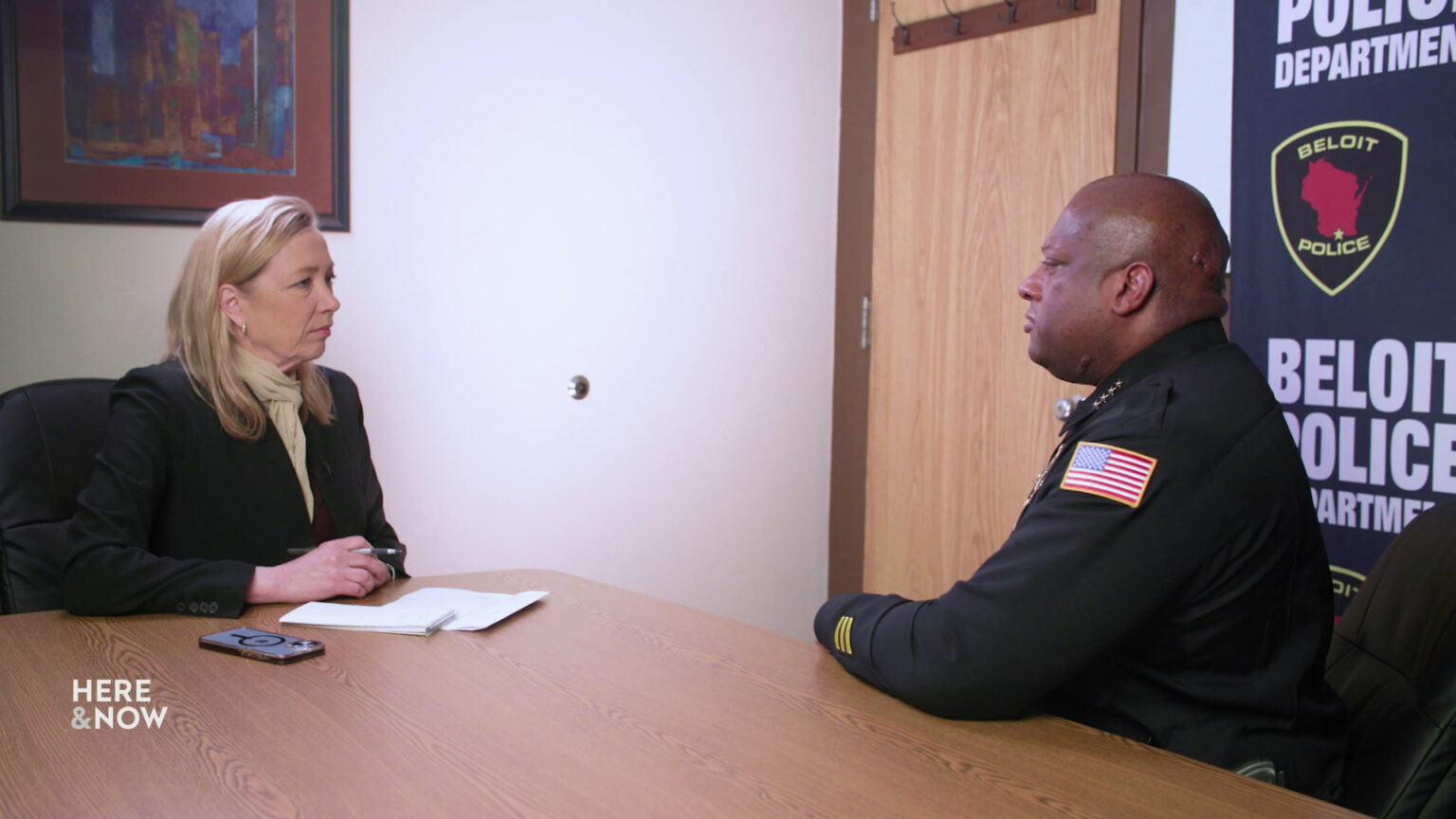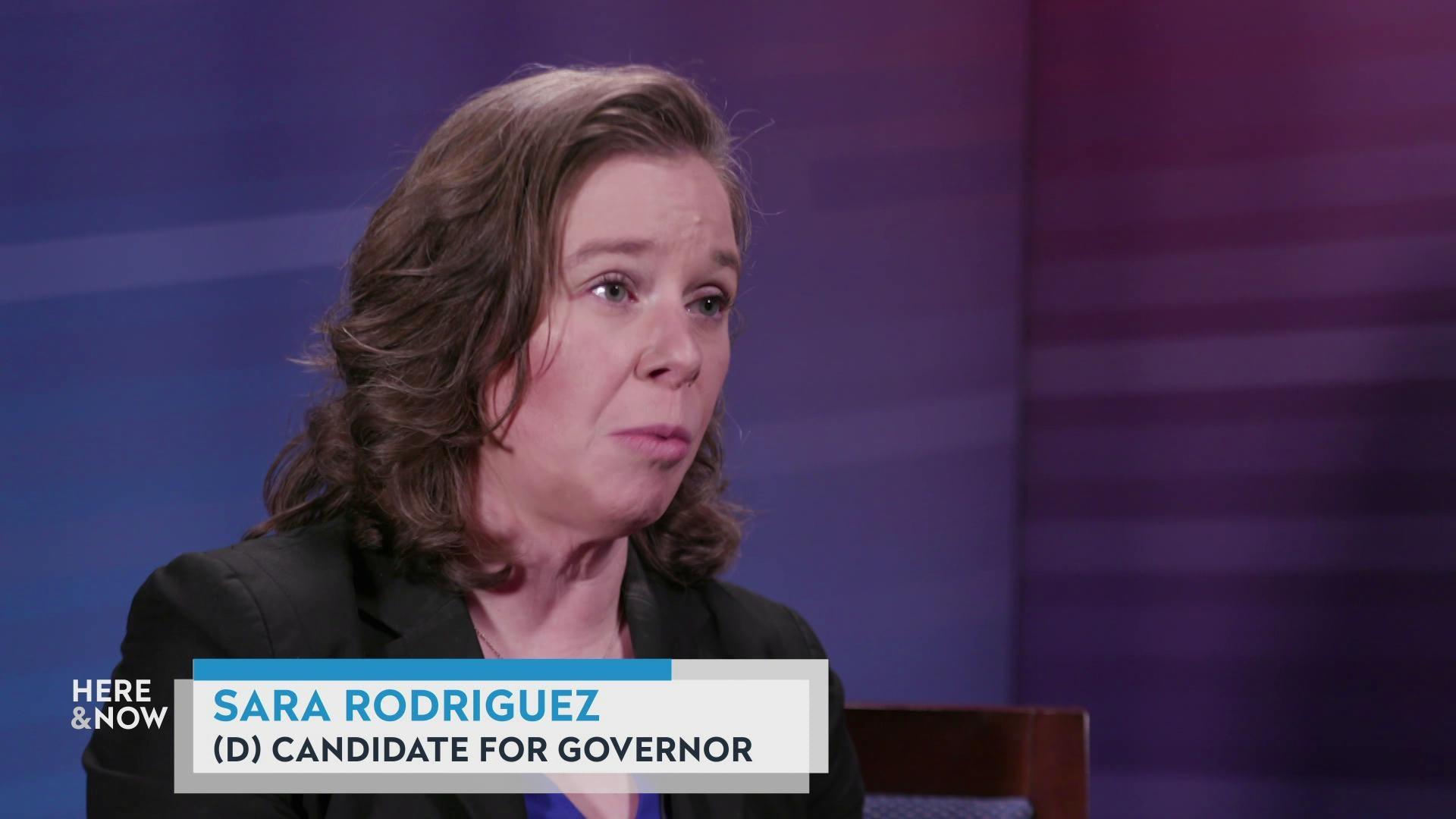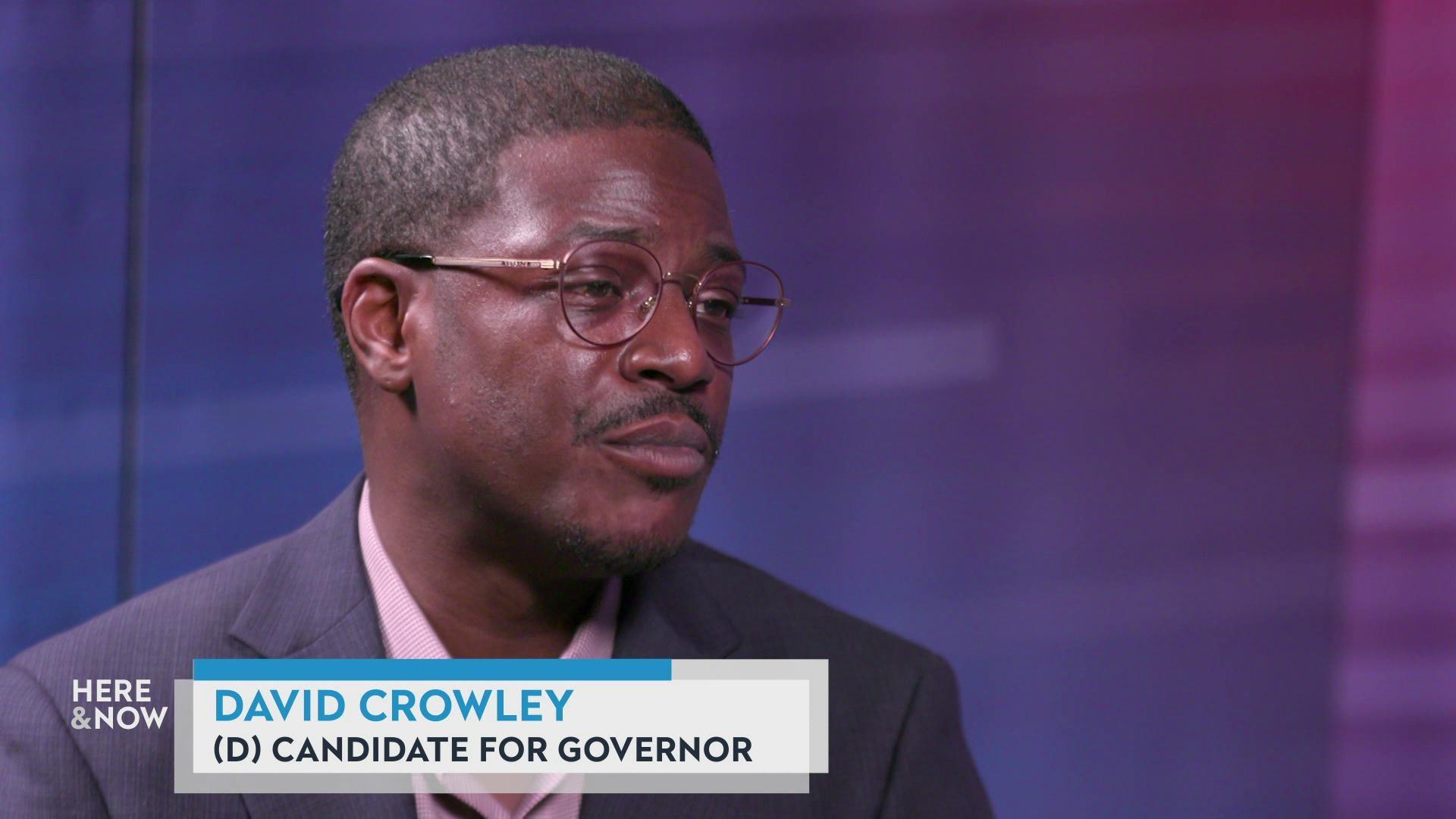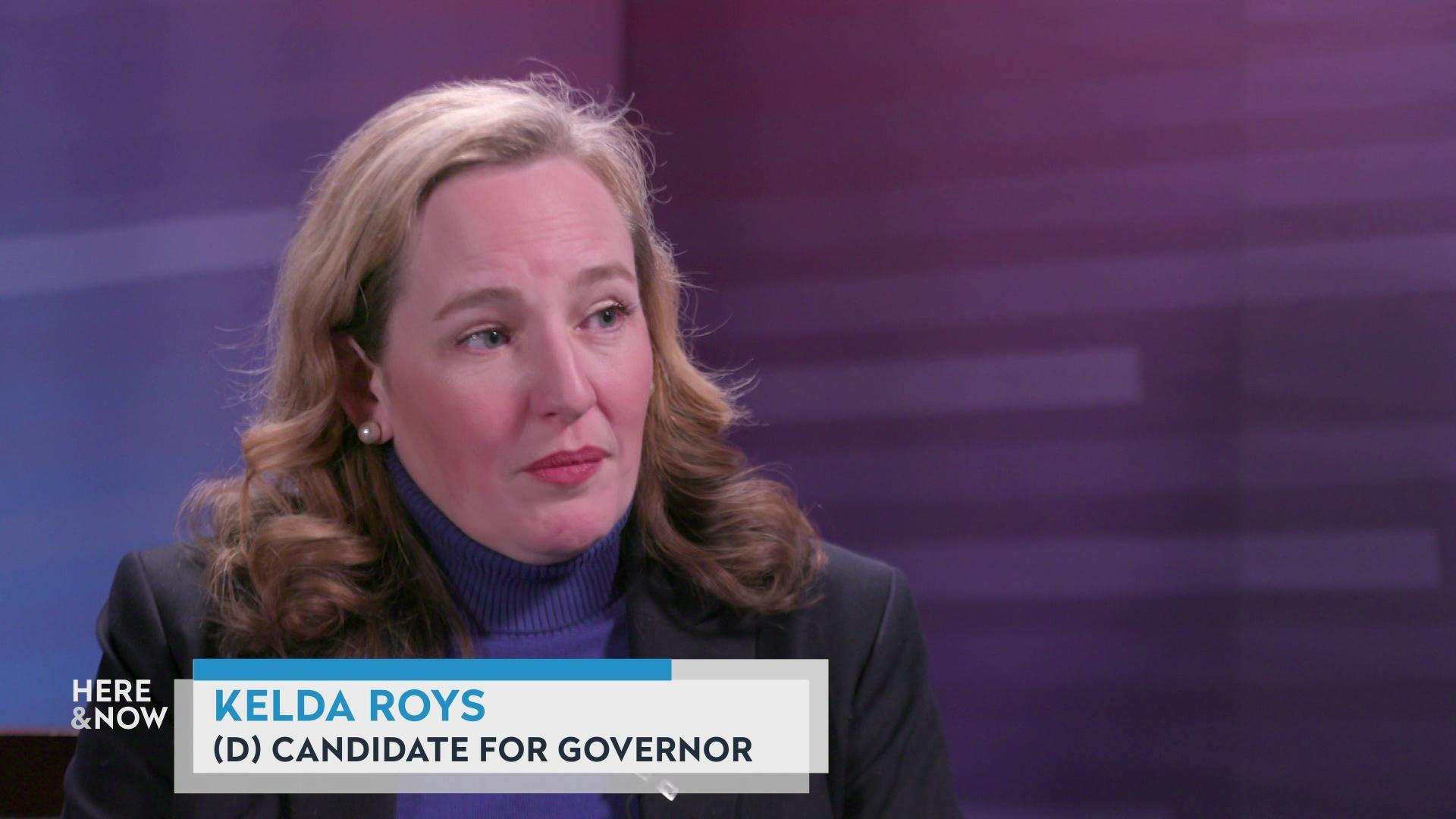'Here & Now' Highlights: Zac Schultz, Chief Andre Sayles, Philip Rocco
Here's what guests on the Jan. 17, 2025 episode said about the Wisconsin Supreme Court considering the balance of power between the Legislature and governor, local law enforcement and immigration status, and the shortfalls of the state's shared revenue law.
By Frederica Freyberg | Here & Now
January 21, 2025

Frederica Freyberg and Chief Andre Sayles (Credit: PBS Wisconsin)
The Wisconsin Supreme Court could determine whether the legislature can effectively veto a governor’s administrative rule — Here & Now reporter Zac Shultz broke down the implications of any change to the current balance of power. In preparation for the new federal administration and President Donald Trump’s calls for mass deportations, Beloit Police Chief Andre Sayles offered guidance to city residents about when his officers will consider the immigration status of people. The 2023 shared revenue deal was heralded as helping cash-strapped local governments around Wisconsin, but Marquette University political science professor Philip Rocco said the new law still falls short.
Zac Schultz
Senior political reporter, Here & Now
- The Wisconsin Supreme Court heard oral arguments on Jan. 16 in Evers v. Marklein II, ongoing litigation over the powers of the executive and legislative branches of state government. Justice Brian Hagedorn called the case “…as consequential for the operation of government as maybe I’ve seen in my time on the court.” Schultz described how the case weighs the power of the Wisconsin Legislature’s Joint Committee for Review of Administrative Rules to effectively veto rules enacted by a governor.
- Schultz: “The particular cases the Supreme Court heard this week, one of them was a rule about building codes and another rule had to do with a ban on ‘conversion therapy,’ which is a type of therapy that tries to convince LGBTQ people that they are actually straight people. The state wanted to ban that. It’s a committee in the Legislature for the review of administrative rules — the small committee with just a handful of members that can eventually put a hold on any of these rules coming out of administrative agencies and stopped them from taking effect. And when they do that, it’s in effect, a legislative veto over administrative power. The Supreme Court is trying to weigh whether that’s too much – whether that’s actually allowed under the Constitution. and where that balance of power should reside.”
Andre Sayles
Chief of Police, Beloit Police Department
- A bill in Congress named the “Laken Riley Act” would mandate the federal detention of unauthorized immigrants who are suspected of a variety of minor crimes, such as shoplifting. Seeking to address local fears over the issue, Chief Sayles wrote an open letter to residents in Beloit saying the department’s officers do not seek out people who are undocumented, but consider immigration status only when a serious crime impacting public safety has been committed.
- Sayles: “I thought as the leader of our police department and the leader of enforcing laws, I think everyone in our community needed to hear from me to hear our stance on it, and understand that we won’t be going out and just randomly knocking on doors to say ‘We heard that this person in the home may be illegal, we need to check your immigration status.’ Once again, that’s going to add more work to our officers. That’s going to prevent us from doing some of the things that we’ve done to build a better Beloit far as making sure our roadways are safe, making sure that we’re being partners of our students in the community because they are our future, making sure that we’re handling the violent crime that Beloit has had a history of known for. We are a city that went from having over 100 confirmed shootings in this city to where we’re in the twenties now, and that is the hard work that the men and women of the Beloit Police Department has done with the help of our community members. So if we tarnish that relationship, we’re going to go back to those days of ‘don’t go to Beloit.'”
Philip Rocco
Professor, Marquette University Department of Political Science
- In 2023, a much-heralded bipartisan shared revenue plan for local governments was passed by the Wisconsin Legislature and signed by the governor, allowing the county and city of Milwaukee to raise their local sales tax to shore up services while at the same time boosting state funding going to municipalities across the state. But Waukesha County – the wealthiest county in the state by income – is looking at a $5 million budget shortfall in 2025 and is beseeching the state to provide more shared revenue. Rocco said it’s not surprising the county finds itself in this place fiscally.
- Rocco: “I don’t think it’s particularly surprising, in part because the shared revenue formula is not necessarily designed to advantage counties like Waukesha. It receives one of the lowest shares in per capita aid among counties in the state. At the same time, the pressures that are on counties and municipalities around the state are really pretty constant, regardless of their wealth. So, for example, there are inflation pressures which raise the cost of doing things like sidewalk repair and street repair. But at the same time, the property tax levy limit that the state sets has not been adjusted to sort of take account of those inflationary pressures, and that really puts counties and municipalities in a squeeze position.”
Watch new episodes of Here & Now at 7:30 p.m. on Fridays.
 Passport
Passport











Follow Us